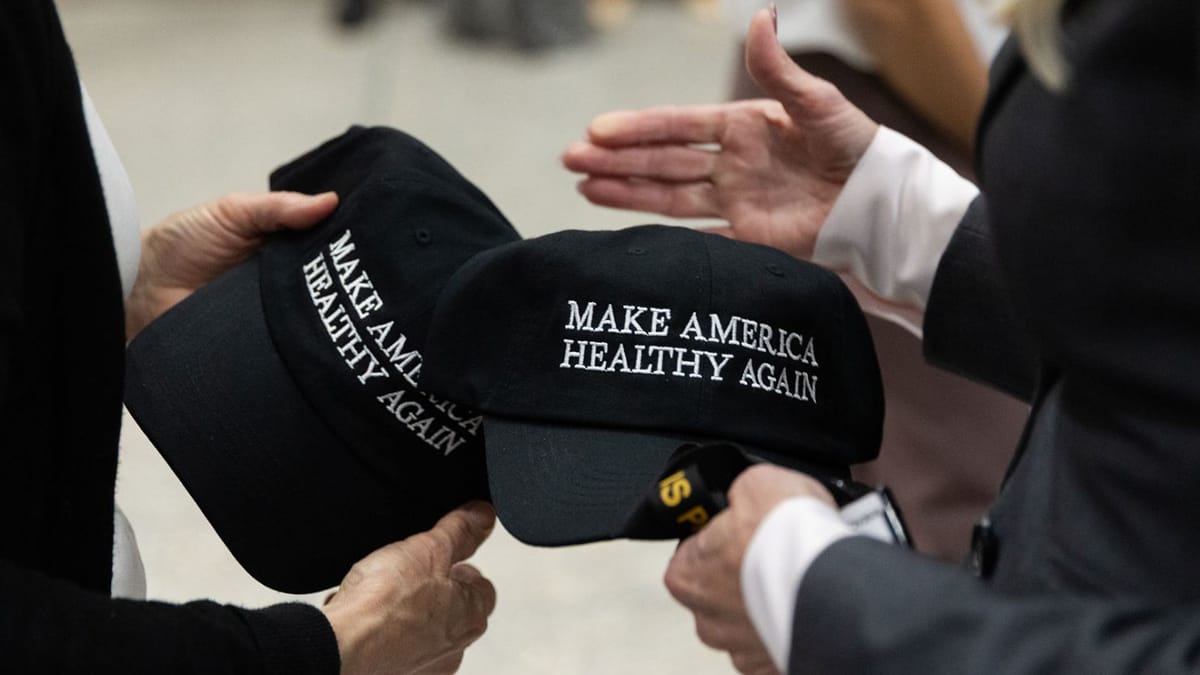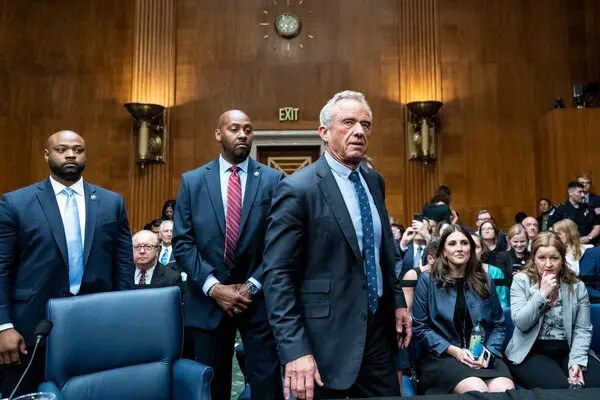MAHA Report 2025: Children's Health Plan Full Analysis

What is the MAHA Report? RFK Jr.'s Children's Health Strategy Explained
The Trump administration's second "Make America Healthy Again" (MAHA) report, officially titled "Make Our Children Healthy Again," arrived September 9, 2025, with considerable fanfare from Health Secretary Robert F. Kennedy Jr. The comprehensive document presents 128 recommendations designed to tackle what Kennedy characterizes as America's "sickest generation" of children.
Kennedy described the report as representing "a lot of these 128 recommendations are the things that I've been dreaming about," calling it a "historical collaboration" between health care workers, teachers and industry. The children's health strategy represents the administration's most comprehensive attempt to address rising rates of childhood chronic diseases, including obesity, diabetes, and neurodevelopmental disorders like autism that have increasingly concerned parents and pediatric health professionals nationwide.
The report's foundation rests on four primary pillars that Kennedy believes will transform American children's health outcomes. These include dramatically increased research investment in childhood health issues, comprehensive policy reforms featuring a new vaccine framework, expansive public awareness campaigns about health risks to children, and ambitious private sector partnerships for health improvement initiatives.
The Current State of American Children's Health
Kennedy's characterization of today's children as the "sickest generation" is based on current childhood health statistics. Childhood obesity rates have more than tripled since the 1970s, with nearly 20% of children aged 2-19 now classified as obese according to CDC data. Diabetes in children has similarly increased, particularly Type 2 diabetes, which was once extremely rare in pediatric populations but now affects thousands of young Americans annually.
The rise in autism spectrum disorder diagnoses has been particularly dramatic, increasing from 1 in 150 children in 2000 to 1 in 36 children today. Similarly, ADHD diagnoses have climbed steadily, now affecting approximately 11% of school-age children, raising questions about everything from environmental factors to changes in educational expectations and screen time exposure.
These trends have created a perfect storm of childhood health challenges that previous generations simply didn't face at comparable scales. The combination of processed food consumption, reduced physical activity, increased screen time, and exposure to various environmental chemicals has created a complex web of health risks that traditional pediatric medicine is still learning to address comprehensively.
New Policy Directions in Children's Health
The MAHA report introduces some new policy directions, particularly in areas where Kennedy's personal advocacy has long focused. The formal definition of ultra-processed foods represents one such area, with HHS announcing the definition development process in July 2025 following years of scientific debate about how to classify and regulate these products.
The artificial food dyes initiative represents perhaps the most concrete example of new regulatory action, with Kennedy having previously announced a timeline to ban these additives by the end of 2026. FDA Commissioner Marty Makary has publicly supported this initiative, suggesting genuine momentum behind efforts to remove synthetic food colorings that some studies have linked to hyperactivity and behavioral problems in sensitive children.
These policy directions reflect Kennedy's long-standing belief that environmental and dietary factors play crucial roles in childhood health problems.
RFK Jr.'s Vaccine Policy Framework
The proposed childhood vaccine schedule review suggests a fundamental reconsideration of vaccination timing, and combinations.
The report's emphasis on vaccine injury reporting systems reflects Kennedy's long-held belief that current adverse event monitoring inadequately captures the true scope of vaccination-related problems. Kennedy described the existing system as "broken," claiming that most reports of vaccine injuries "are made invisible" and promising to "recasting the entire program so that vaccine injuries will be reported and studied."

Environmental Health and Chemical Exposure Policies
The MAHA report's treatment of environmental health issues reflects Kennedy's long-standing concerns about chemical exposure in children. The document acknowledges that children face increased exposure to various environmental chemicals through air pollution, water contamination, pesticide residues, and household products.
Kennedy's emphasis on industry best practices and collaborative approaches reflects political pragmatism.
Technology, Screen Time, and Digital Wellness
Modern childhood increasingly revolves around digital technology, creating health challenges that previous generations never faced and that traditional pediatric medicine is still learning to address comprehensively. The MAHA report acknowledges several technology-related health issues, including excessive screen time effects on mental health, social media impact on adolescent development, and smartphone addiction among children.
Political Dynamics and Bipartisan Opportunities
Childhood health issues represent one of the few policy areas where genuine bipartisan cooperation remains possible in today's polarized political environment. Parents across party lines share concerns about rising obesity rates, environmental exposures, and mental health challenges facing their children, creating potential common ground for effective policy development.
Effective childhood health policy requires sustained commitment over multiple political cycles, making broad-based support essential for long-term success. Kennedy's background as both a Democratic family legacy and health activist creates unique political dynamics that could facilitate efforts to build lasting consensus around children's health priorities.
State-level implementation will likely prove crucial for many MAHA initiatives, requiring cooperation between federal agencies and state health departments, education systems, and regulatory agencies.
Future Prospects for American Children's Health Policy
The MAHA children's health report represents significant opportunity for the future of American pediatric health policy. Its comprehensive scope and high-level political attention could provide unprecedented resources and focus for addressing genuine problems that affect millions of children.
Success will ultimately depend on the administration's ability to transform recommendations into actionable policies that produce measurable improvements in children's health outcomes.
The stakes extend far beyond partisan politics to the fundamental question of whether American society can effectively protect and promote the health of its youngest members in an increasingly complex world. Rising chronic disease rates, environmental health challenges, and digital age risks require sophisticated policy responses that balance individual freedom with collective responsibility, scientific evidence with community values, and immediate needs with long-term sustainability.
References
- NBC News - RFK Jr.'s new 'MAHA' report gives road map to improving kids' health - Original reporting on the September 9, 2025 MAHA report release
- Centers for Disease Control and Prevention (CDC) - Childhood obesity statistics and vaccine safety monitoring data
- Food and Drug Administration (FDA) - Information on food additives, artificial dyes, and drug regulation
- Department of Health and Human Services (HHS) - Federal health policy and dietary guidelines
- Environmental Protection Agency (EPA) - Environmental health and chemical safety regulations
- Vaccine Adverse Event Reporting System (VAERS) - Official vaccine safety monitoring database
- Vaccine Safety Datalink - CDC vaccine safety surveillance program
- American Public Health Association - Dr. Georges Benjamin quotes and public health analysis
- Robert Wood Johnson Foundation - Avenel Joseph commentary on environmental health policy
- Alliance to End Hunger - Eric Mitchell statements on SNAP funding and nutrition programs
- New York University School of Public Health - Marion Nestle food policy expertise
- Children's Health Defense - RFK Jr.'s anti-vaccine advocacy organization
- MIT Operations Management - Retsef Levi's academic background and vaccine claims
- Trump Administration Executive Orders - February 2025 MAHA commission establishment
- SNAP Program Information - Current nutrition assistance policies
- Presidential Fitness Test - National fitness assessment program details
